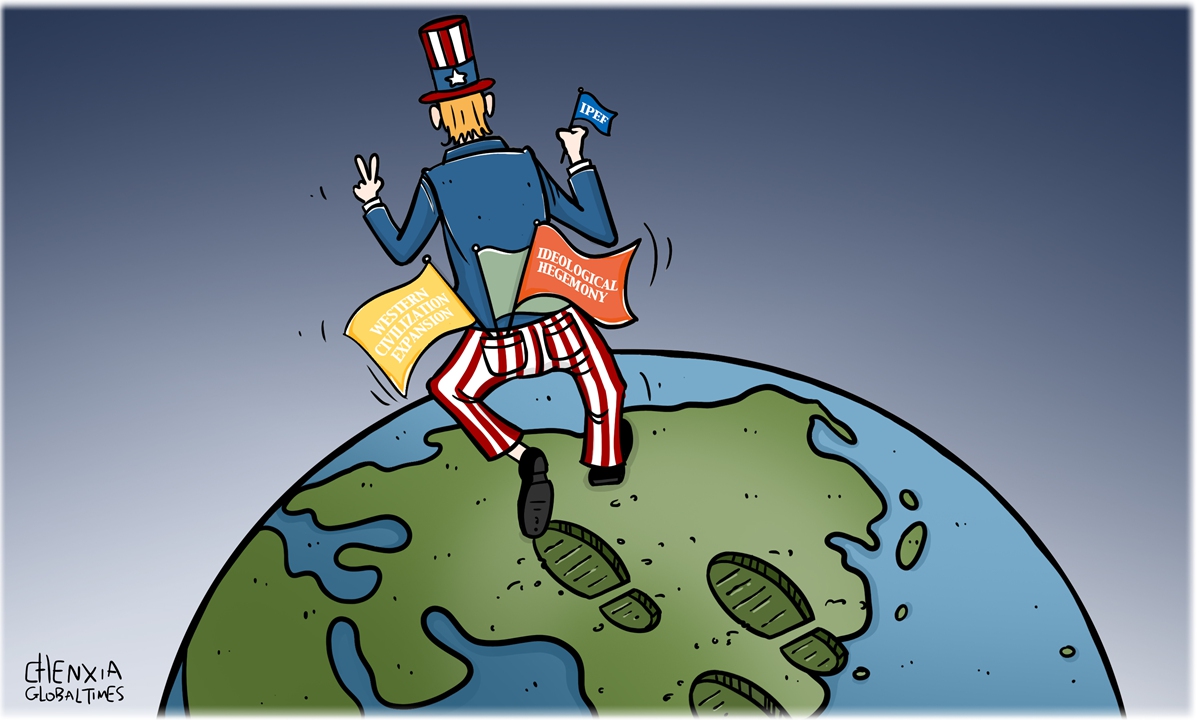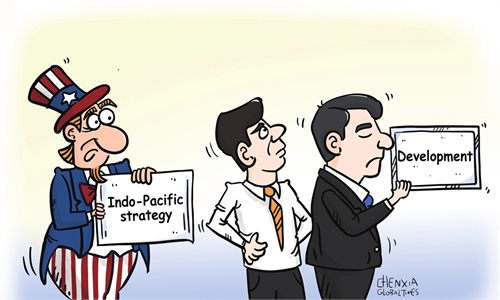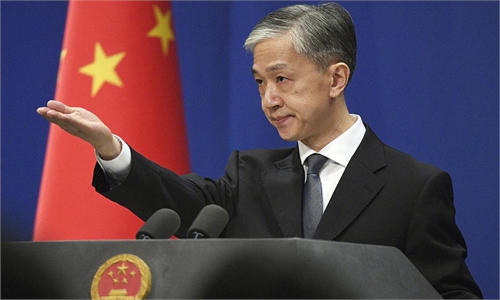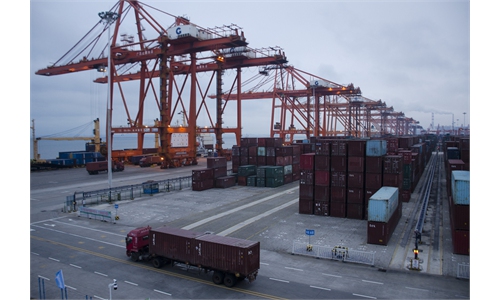IPEF hides US’ ill ideological intentions

Illustration: Chen Xia/GT
Although the Indo-Pacific Economic Framework (IPEF) promoted by the US in the Asia-Pacific appears to be an economic initiative, it has strong political overtones. It embeds ideological antagonism into the trajectory of economic development in the Asia-Pacific region, while inevitably aiming to reinforce the US dominance in setting trade rules.The IPEF and the Russia-Ukraine conflict do not seem to be directly related, but if we switch to an ideological perspective, we will see that the Russia-Ukraine conflict has exacerbated ideological divisions in Europe and at the same time consolidated the unity of old and new Europe on this basis, enhancing the superiority of the US and the West in terms of political systems.
This makes them raise the banner of ideology, especially democracy, even higher in the face of future developments in the Asia-Pacific region and in response to the rise of China, as a way to draw lines and gang up on them.
This will have profound and long-term implications for China and the Asia-Pacific region as they try to develop according to their own national realities.
When we talk about ideology today, we talk about democracy, institutions and order, concepts that have been largely dominated by the West.
The expansion of NATO has a very stubborn logic that the order laid down by Western civilization should be the global order, and other countries must develop according to this logic. The world was simply divided into democratic and non-democratic. Democracy is peace, non-democracy is regression, conflict, instability.
The West believes in its bones that their ideological standards are universally applicable, and that different ideologies are potential opponents and enemies, or at least "uncivilized," and are likely to be the destroyers of the order created by the West, so they must be transformed. This is the logic of "regime change" that the US is always trying to implement throughout the world.
Peace is certainly something that all countries want. But the question is whether the order of Western civilization means that one must adopt the same political system as the West, or the same beliefs as the West, in order to obtain it.
We are seeing a return to the divisions and antagonisms in international politics that Western civilization has created in its 500 years of expansion. The recent forums and organizations that have been consolidated and created against China are all ideologically based and have set China up as the antagonist.
They have never seen China's development in light of its reality, what the country has risen on, and what it is seeking. Their "inventory" of concepts and theories does not contain the tools to understand China in a comprehensive, complete and accurate way. Paradoxically, if China's rise is truly understood realistically, it will be difficult to raise the "banner" under which they are expanding.
The US moves against China in the Asia-Pacific region may appear to be reducing China's influence, but they are essentially driving another wave of global expansion of Western civilization.
This regrouping will obviously divide trust between Asia-Pacific countries, especially the cooperative relationships cultivated after the Cold War through globalization, and will instigate conflicts between regional countries, which include both ethnic conflicts within countries and border disputes between them.
Since the end of the Cold War, the West has considered this a victory for the democratic standards they set, but this "victory" has not solved the problem of how countries with different ideologies, political systems and cultural traditions can live together in peace and build a lasting, stable and peaceful order. This is the question of the century and will greatly increase the difficulty for China to explore its own development path, and poses a serious challenge for China in participating reconstruction of the global and regional order.
The author is a senior editor with People's Daily, and currently a senior fellow with the Chongyang Institute for Financial Studies at Renmin University of China. dinggang@globaltimes.com.cn. Follow him on Twitter @dinggangchina




